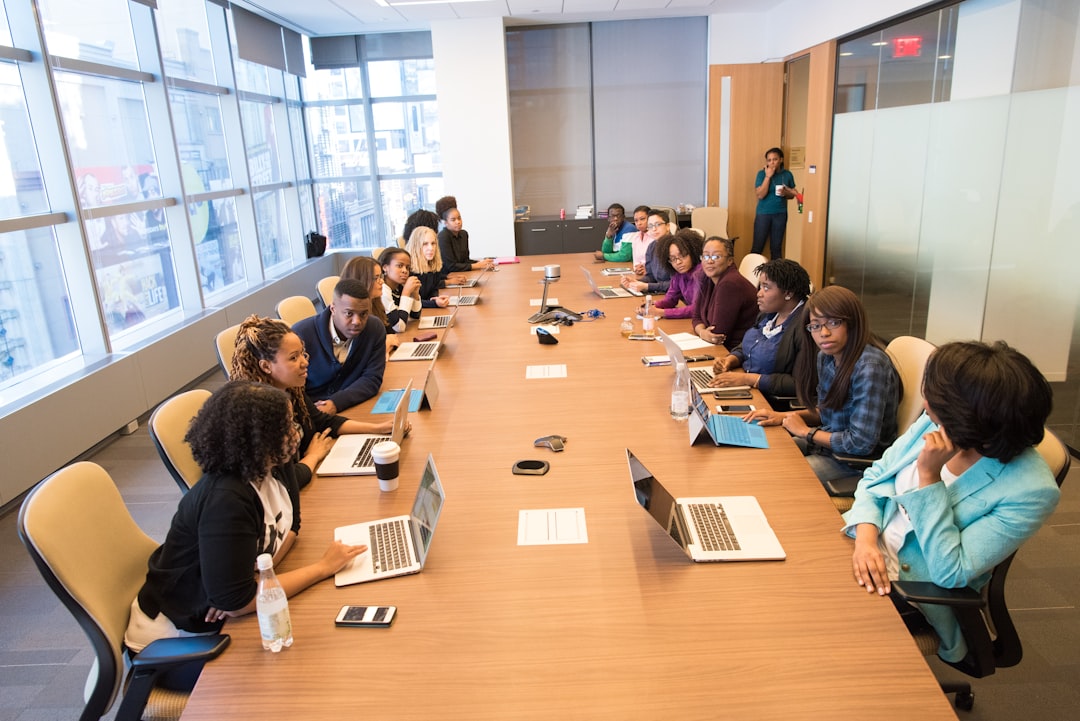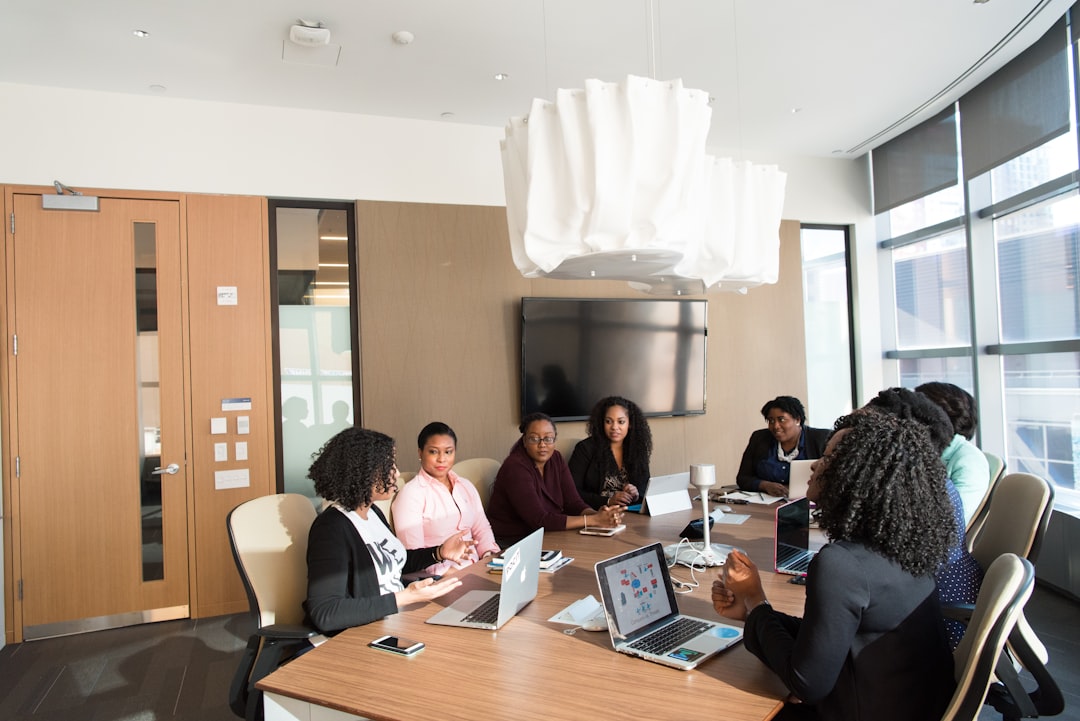Attending conferences is more than just an opportunity to escape the confines of your desk and travel to a new city. Conferences offer a wealth of connections, opportunities, and knowledge to those who take advantage of them. While attending workshops and keynote presentations are important, one of the most valuable aspects of conferences is the chance to network with professionals in your industry.
Networking can often feel awkward or forced, but it doesn’t have to be that way. When you approach networking with an open mind and an eagerness to learn from others, you create the potential for success to flourish. When you put yourself out there by initiating conversations, sharing ideas, and showing genuine interest in what others have to say, you position yourself to make meaningful connections that can last far beyond the conference.
Networking at conferences is an investment in your personal and professional growth. It’s an opportunity to broaden your perspectives, gain new insights, and explore ways to collaborate with others. It is a way during which you can fine-tune your communication, leadership, and interpersonal skills while expanding your network.
Are you ready to unlock your potential through conference networking? Let’s explore how to make the most of your conference experience with these effective strategies and techniques.
The Pre-Game: Preparing for a Successful Conference Experience
Are you ready to take your professional goals to the next level? Attending a conference is an excellent way to gain valuable insights, sharpen your skills, and meet like-minded individuals who share your passion in your industry or field. But to make the most out of your time at the conference, it’s essential to have a plan in place before you even set foot in the event venue. Here are some key strategies to help you prepare for a successful conference experience:
1. Set clear goals and objectives
Before attending the conference, take some time to articulate what you hope to achieve. Are you looking to make new connections? Gain knowledge on a specific topic? Attend workshops or sessions on new trends? The more specific your goals, the more successful your experience will be.
2. Plan your schedule
Review the conference schedule and prioritize the sessions, workshops, and keynote speeches you want to attend. Having a schedule will keep you on track, ensure you don’t miss out on any valuable opportunities, and help you make the most of your time.
3. Know who is attending
Take some time to research the speakers, presenters, and other attendees who will be at the conference. This knowledge can help you make more meaningful connections during the event and create a more engaging and enjoyable experience.
4. Practice your pitch
When someone asks you what you do, be prepared to communicate your role and expertise in a concise and compelling way. Practice your pitch beforehand, so you feel comfortable and confident when you meet new people.
5. Bring your business cards
Make sure to bring plenty of business cards to the conference. This simple act can help you quickly exchange contact information with new connections and increase the likelihood of following up after the event.
By following these simple steps, you’ll be well on your way to preparing for the most successful conference experience possible. Stay focused, stay motivated, and stay determined to make meaningful connections and reach your professional goals. The pre-game may be critical, but the true magic happens when you engage in effective networking and expand your professional visibility. So get ready to unlock your potential by attending a conference and connecting with others in your field!
The Art of Mingling: Effective Networking Techniques and Strategies
As exciting as conferences can be, many attendees more often than not find mingling with strangers daunting. They might hang back, hide behind their phones, or hit the buffet line until they have the courage to take the plunge. But this sort of behavior can sabotage the real value of attending a conference: networking!
Whether it is having conversations with high-level executives or like-minded peers, rehearsing elegant and effective networking techniques and strategies can help you make meaningful connections, expand your knowledge base, and tap into new opportunities.
Networking doesn’t have to be about handing out 100 business cards in one afternoon or being able to navigate the room with ease. It is about being authentic, listening, picking up on what other people need, and building a professional alliance from there. Cultivating solid relationships is the cornerstone of the networking experience – and the secret sauce to our success.
Here are a few tried and tested tips to streamline your networking efforts:
1. Be Prepared
Go into the conference with a plan. Identify your must-meet people and schedule time to engage with them. Research the conference beforehand and get to know other attendees’ backgrounds and previous work experiences.
Finally, grab enough business cards and stock up on crucial supplies such as notepads, pens, and charging cables. You don’t want to be caught out of the loop.
2. Introduce Yourself
If you are standing alone or need a conversation starter, don’t hesitate to introduce yourself. Be yourself; don’t exaggerate or falsify details. Instead, introduce yourself confidently, consider asking open-ended questions, and actively listen to each response. Don’t forget to acknowledge each person’s conversation before parting ways.
3. Build Synergies
Networking isn’t just about adding contacts to your rolodex; it’s about building authentic relationships that can enhance your professional development. Synergize by learning new things from those outside your field, sharing information, and making mutually beneficial connections. Remember to be respectful, give value, and pay it forward.
4. Follow Up
Following up after networking is as important as showing up in the first place. Use LinkedIn, email, or other approaches to reconnect and nurture professional relationships. When sending out any follow-ups address the concerns or comments discussed during your initial conversations. If possible, add value by connecting your new contact with someone mutually beneficial for all stakeholders.
Networking takes practice, and in most cases, it pays off. Even if you feel your career network contains everything and that it’s difficult to grow and optimize, expanding your contacts list and making connections with people attending the same session as you or presenting at a workshop may be that life-changer you have been searching for.
Remember, it’s not about how many business cards you have, but how effective you are at the mingling!
When sending out any follow-ups address the concerns or comments discussed during your initial conversations.
Expanding your Horizons: Building a Diverse Network
One of the biggest advantages of networking at conferences is the opportunity it provides to build a diverse network. By expanding your connections beyond your immediate industry, you can gain new perspectives, insights, and ideas that can help you grow both professionally and personally.
Networking with people who have different backgrounds, experiences, and areas of expertise can help you broaden your horizons, expose you to fresh perspectives, and challenge your assumptions. With a diverse network, you can tap into resources that you might not have had access to otherwise, including new business opportunities, job leads, mentorship and more.
Building a diverse network takes time, effort, and intentionality. Consider attending panel discussions or sessions outside of your industry focus. Strike up conversations with people in different fields or industries during coffee breaks or happy hours. Re-connect with old acquaintances and former colleagues to learn about their new ventures and career paths.
Don’t be afraid to step outside your comfort zone and introduce yourself to people who look, think, or speak differently from you. Discovering common ground with individuals who come from different backgrounds and cultures can open doors that lead to exciting cross-industry collaborations, partnerships and friendships.
Expanding your horizons requires an open-minded and inquisitive approach to networking. Be curious and willing to learn from others- and don’t be afraid to share your own experiences and insights as well. By cultivating a diverse network, you open the door to greater learning, creativity, and personal growth.
Strike up conversations with people in different fields or industries during coffee breaks or happy hours.
Strengthening Professional Visibility: Making an Impression on Industry Leaders
Are you ready to make a lasting impression on the industry leaders at your next conference? This is your chance to elevate your professional visibility and establish your credibility within your industry. Don’t miss out on the opportunity to put yourself in the spotlight and showcase your skills and knowledge.
One of the key ways to make a lasting impression is to be prepared. Come to the conference equipped with your elevator pitch – a short, concise summary of who you are, what you do, and what makes you unique. Be sure to rehearse and refine your pitch before the conference. This will help you confidently and effectively communicate your value proposition to anyone you meet.
It’s also important to dress professionally and appropriately for the conference. First impressions matter, and how you present yourself sends a message about your level of professionalism and attention to detail. Dress to impress and show the industry leaders that you mean business.
Remember to be friendly and approachable. Strike up conversations with those around you or approach industry leaders with whom you want to connect. Be sincere and curious – show interest in the work they do and ask insightful questions. This will help you establish a genuine connection and build rapport.
Additionally, come armed with business cards and any relevant marketing material about yourself or your company. This is a great way to leave a tangible reminder of your conversation and make a lasting impression. Be sure to follow up after the conference with those you connected with to ensure that you maintain the professional relationship you worked so hard to establish.
By taking the time to prepare yourself, engage with industry leaders, and leave a lasting impression, you are positioning yourself for success. Your professional visibility will be strengthened, and doors may even open for future personal and professional growth opportunities. Don’t let this chance pass you by – go to your next conference with the drive and determination to make an impact.
It’s also important to dress professionally and appropriately for the conference.
Creating Opportunities: Capitalizing on Connections for Personal and Professional Growth
Are you ready to take your career to the next level? Then it’s time to start thinking about how you can use the connections you make at conferences to create new and exciting opportunities.
Whether you’re looking to land a new job, expand your skillset, or find a mentor who can help guide you through your professional journey, there are endless opportunities waiting for you at conferences.
So how do you turn those connections into opportunities? Here are some tips to help you get started:
1. Follow up: Don’t let your connections go to waste! After the conference, follow up with the people you met. Send them a quick email or connect with them on social media. This is your chance to keep the conversation going and start exploring new opportunities.
2. Join a professional organization: Many conferences offer the opportunity to join a professional organization. This can be a great way to stay connected with the people you meet and to access new opportunities in your field.
3. Attend after-hours events: The networking doesn’t stop when the conference sessions end. Attend after-hours events, such as networking dinners or cocktail parties, to meet even more people and expand your network.
4. Get involved: If you have the opportunity, consider getting involved in conference planning or organizing. This can help you build new relationships and position yourself as a thought leader in your field.
Remember, the connections you make at conferences are just the beginning. It’s up to you to leverage those relationships and create new opportunities for yourself. So go out there and make the most of every conference!
Attend after-hours events, such as networking dinners or cocktail parties, to meet even more people and expand your network.
Unlocking Your Potential Through Conference Networking
Congratulations! You’ve made it to the conclusion of this blog post, which means you’re already one step closer to unlocking your potential through conference networking. By now, you should have a good idea of why networking at conferences is so valuable, how to prepare for success, effective techniques and strategies, building a diverse network, how to make an impression on industry leaders, and how to create opportunities for personal and professional growth.
But the learning doesn’t stop here. It’s important to take action, put these techniques and strategies into practice, and continue to grow your network beyond the confines of a conference. Networking is a lifelong endeavor, and the benefits that come with it are priceless.
Approach networking with ambition and determination, and you’ll find that you’ll be able to unlock doors that you never thought were possible. Opportunities will present themselves, and you’ll be in a position of power to seize them.
I challenge you to step out of your comfort zone, take risks, and make connections that will last a lifetime. Attend conferences with a goal in mind, and use the techniques and strategies shared in this post to achieve that goal. Remember to be persistent, even if at first, your efforts seem fruitless.
By unlocking your potential through conference networking, you’ll establish yourself as a leader in your industry and create a path for personal and professional growth. The opportunities are endless, and it’s all within reach if you’re willing to put in the effort.
In conclusion, networking at conferences is one of the most valuable investments you can make in yourself and your career. By following the steps outlined in this blog post, you can take your networking skills to the next level and unlock your true potential. Good luck, and happy networking!





